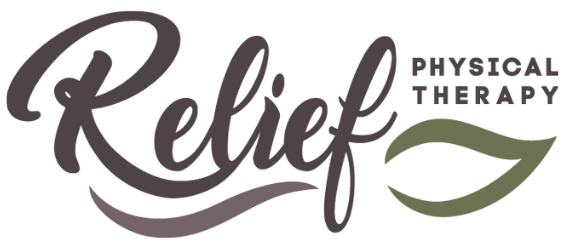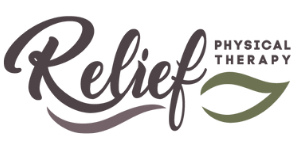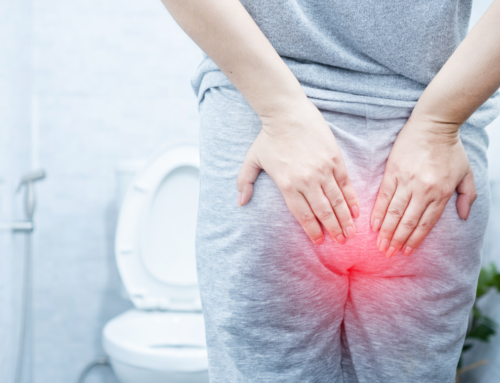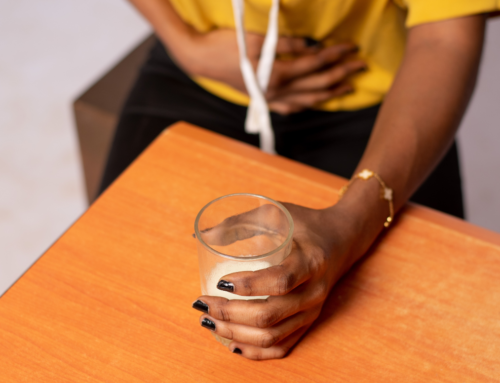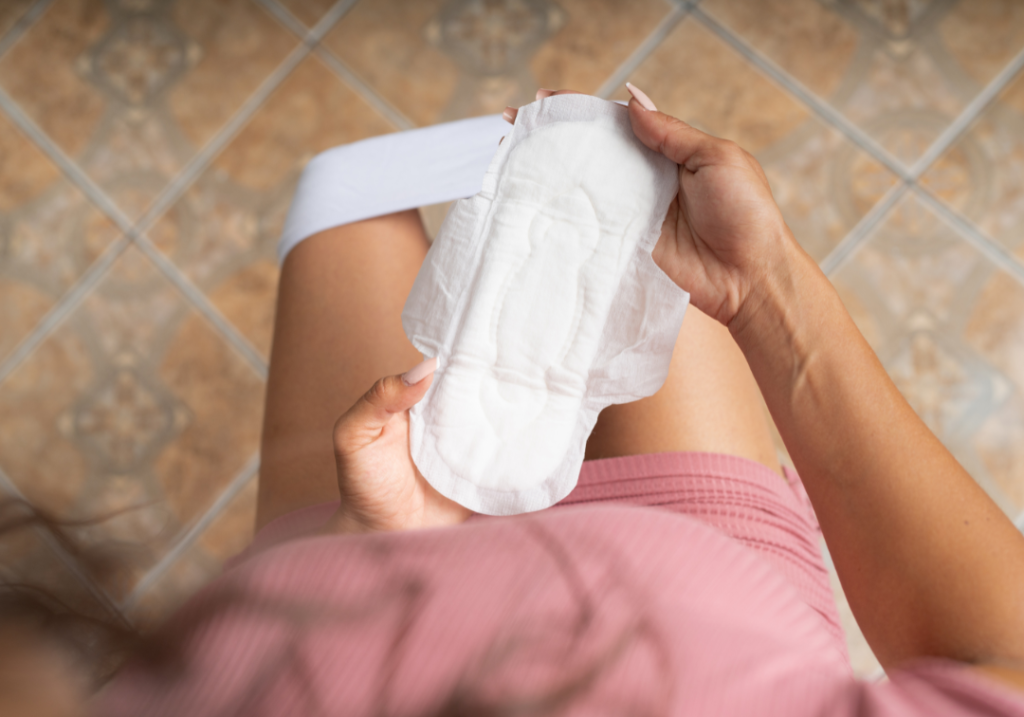
You can manage your urinary leaking without pads
You can manage your urinary leaking without pads
Urinary leaking can be a problem. Not only can it be a huge inconvenience, but it can also be embarrassing and even keep people from doing things that they would love to do, for fear of having an accident.
Wearing pads is helpful. But it becomes irritating, costly, and can still leak through on occasion. Even occasional leaks can make you feel self-conscious about wet spots, clothing bulges, and odor. And worse, leaking makes you feel isolated; like it is a little secret you have to keep. While it is common to talk about leaking like it’s a joke, it’s easy to believe that it’s only happening to you.
I assure you, you are not alone.
Urinary leaking can be a problem. Not only can it be a huge inconvenience, but it can also be embarrassing and even keep people from doing things that they would love to do, for fear of having an accident.
Wearing pads is helpful. But it becomes irritating, costly, and can still leak through on occasion. Even occasional leaks can make you feel self-conscious about wet spots, clothing bulges, and odor. And worse, leaking makes you feel isolated; like it is a little secret you have to keep. While it is common to talk about leaking like it’s a joke, it’s easy to believe that it’s only happening to you.
I assure you, you are not alone.
Affects of urinary leaking
Affects of urinary leaking
Urinary leaking is a common problem that can impact your life and make you feel embarrassed. It keeps you from doing the things you love; things like dancing, or hiking, or playing with your kids.
But there are practical techniques to help manage and improve bladder control. Before you pass on another family outing, or consider something extreme, like surgery, try some less invasive options to help you regain control. You’ll be amazed at how much better you feel when you stop leaking and take back your confidence and your life.
Urinary leaking is a common problem that can impact your life and make you feel embarrassed. It keeps you from doing the things you love; things like dancing, or hiking, or playing with your kids.
But there are practical techniques to help manage and improve bladder control. Before you pass on another family outing, or consider something extreme, like surgery, try some less invasive options to help you regain control. You’ll be amazed at how much better you feel when you stop leaking and take back your confidence and your life.
Tips for managing urinary leaking:
Tips for managing urinary leaking:
Stay Hydrated: Many people think that drinking less means peeing less, but that’s not necessarily the case. Reducing water intake can cause urine to become more concentrated, and more likely to irritate the bladder. Make sure you drink plenty of water during the day to keep your body healthy and your urine clear or light yellow. Limiting caffeine and alcohol consumption can also dehydrate. Keep them to a minimum and choose plain water when you can.
Stop Going “Just in Case”: Your bladder can be trained. If you are going to the bathroom “Just in case” before you leave the house, and before the meeting, and before your TV show starts, you may have accidentally trained your bladder that you need to go before your bladder is actually full.
Instead of peeing “just in case” try waiting until you actually feel the urge. And maybe even a few minutes more, if possible, to begin to train your bladder that it should be able to fill completely.
Scheduled Bathroom Breaks: Establish a regular schedule for bathroom breaks, even if you don’t feel the urge. This strategy differs from peeing “just in case” because you are planning regular patterned breaks. Not simply trying to avoid the need to pee. Plan breaks in evenly spaced blocks to prevent getting distracted and waiting too long to void. Proactively planning bathroom visits can prevent unexpected leaks and give you timed goals for waiting as well. That way you train your bladder for better control.
Manage Constipation: Constipation can contribute to urinary issues. Maintain a fiber-rich diet, stay hydrated to keep stools soft and easy to pass regularly. Consult with A pelvic health physical therapist for effective constipation management.
Avoid Irritating Foods and Beverages: Identify and limit the intake of foods and beverages that may irritate your bladder, such as spicy foods, citrus fruits, and carbonated drinks. Find information about foods that may irritate your bladder here.
Seek Professional Guidance: Consult healthcare professionals such as a pelvic health specialist for personalized advice and guidance. They can assess your specific situation, and provide tailored strategies for managing urinary leaking.
Practice Stress Reduction Techniques: Stress can cause your pelvic floor muscles to be more active, and your brain often interprets this a needing to pee. Explore stress reduction techniques like deep breathing, meditation, or yoga to promote relaxation and body awareness for better bladder control.
Just a side note: I really like a guided meditation. It’s a chance to relax and connect with my body, while some one’s voice tells me what to think about and do. It helps keep the mind chatter down. Find a 5 minute guided meditation for stress relief here.
Stay Active: Regular physical activity can contribute to overall health, including improved bladder function. Keeping your hips, back, and pelvic floor muscles flexible, strong and working together helps the pelvic floor muscles to work when they are needed for support, for stability and for closing pressure. If you struggle with leaking during exercise, you should consult with your healthcare provider to find suitable exercises for your specific needs.
Maintain a Consistent Sleep Schedule: Good sleep can help regulate your body’s functions, including bladder control. Irregular sleep patterns or getting up often at night disrupts sleep and affects long term daytime wellness. Quality sleep each night can make a world of difference. If you struggle with getting up more than one time per night due to bladder issues, this is an indication that something is off. See a Pelvic Health Physical Therapist to determine the cause, and address it, for better sleep.
Hey, did you catch that? Better sleep helps you have better bladder health which helps you have better sleep which helps you have better bladder health…etc.
Try Pelvic Floor Exercises (Kegels): In some cases, leaking is a simple case of weak pelvic floor muscles. Intentionally activating these muscles can strengthen them for better closing pressure. Or build endurance for longer holding power.
Pelvic floor exercises are not a one size fixes all activity. But, hey, it’s worth a try.
If you have trouble performing a Kegel, or if your symptoms seem worse, contact a pelvic health physical therapist to determine the cause of your leaking, and the best strategies to manage it.
Find instruction for performing Kegel Exercises here.
Stay Hydrated: Many people think that drinking less means peeing less, but that’s not necessarily the case. Reducing water intake can cause urine to become more concentrated, and more likely to irritate the bladder. Make sure you drink plenty of water during the day to keep your body healthy and your urine clear or light yellow. Limiting caffeine and alcohol consumption can also dehydrate. Keep them to a minimum and choose plain water when you can.
Stop Going “Just in Case”: Your bladder can be trained. If you are going to the bathroom “Just in case” before you leave the house, and before the meeting, and before your TV show starts, you may have accidentally trained your bladder that you need to go before your bladder is actually full.
Instead of peeing “just in case” try waiting until you actually feel the urge. And maybe even a few minutes more, if possible, to begin to train your bladder that it should be able to fill completely.
Scheduled Bathroom Breaks: Establish a regular schedule for bathroom breaks, even if you don’t feel the urge. This strategy differs from peeing “just in case” because you are planning regular patterned breaks. Not simply trying to avoid the need to pee. Plan breaks in evenly spaced blocks to prevent getting distracted and waiting too long to void. Proactively planning bathroom visits can prevent unexpected leaks and give you timed goals for waiting as well. That way you train your bladder for better control.
Manage Constipation: Constipation can contribute to urinary issues. Maintain a fiber-rich diet, stay hydrated to keep stools soft and easy to pass regularly. Consult with A pelvic health physical therapist for effective constipation management.
Avoid Irritating Foods and Beverages: Identify and limit the intake of foods and beverages that may irritate your bladder, such as spicy foods, citrus fruits, and carbonated drinks. Find information about foods that may irritate your bladder here.
Seek Professional Guidance: Consult healthcare professionals such as a pelvic health specialist for personalized advice and guidance. They can assess your specific situation, and provide tailored strategies for managing urinary leaking.
Practice Stress Reduction Techniques: Stress can cause your pelvic floor muscles to be more active, and your brain often interprets this a needing to pee. Explore stress reduction techniques like deep breathing, meditation, or yoga to promote relaxation and body awareness for better bladder control.
Just a side note: I really like a guided meditation. It’s a chance to relax and connect with my body, while some one’s voice tells me what to think about and do. It helps keep the mind chatter down. Find a 5 minute guided meditation for stress relief here.
Stay Active: Regular physical activity can contribute to overall health, including improved bladder function. Keeping your hips, back, and pelvic floor muscles flexible, strong and working together helps the pelvic floor muscles to work when they are needed for support, for stability and for closing pressure. If you struggle with leaking during exercise, you should consult with your healthcare provider to find suitable exercises for your specific needs.
Maintain a Consistent Sleep Schedule: Good sleep can help regulate your body’s functions, including bladder control. Irregular sleep patterns or getting up often at night disrupts sleep and affects long term daytime wellness. Quality sleep each night can make a world of difference. If you struggle with getting up more than one time per night due to bladder issues, this is an indication that something is off. See a Pelvic Health Physical Therapist to determine the cause, and address it, for better sleep.
Hey, did you catch that? Better sleep helps you have better bladder health which helps you have better sleep which helps you have better bladder health…etc.
Try Pelvic Floor Exercises (Kegels): In some cases, leaking is a simple case of weak pelvic floor muscles. Intentionally activating these muscles can strengthen them for better closing pressure. Or build endurance for longer holding power.
Pelvic floor exercises are not a one size fixes all activity. But, hey, it’s worth a try.
If you have trouble performing a Kegel, or if your symptoms seem worse, contact a pelvic health physical therapist to determine the cause of your leaking, and the best strategies to manage it.
Find instruction for performing Kegel Exercises here.
Getting Control can take a little trial and error
Getting control can take a little trial and error
Effectively managing urinary leaking can take a bit of trial and error. Everyone’s body, and contributing factors can be different. By incorporating these practical tips into your daily routine, you can take positive steps toward improved bladder control and a more confident, comfortable life. Remember, individual experiences may vary. Be open to adjusting these strategies to suit your needs. A little trial and error can go a long way. Consult with healthcare professionals for personalized advice.
Effectively managing urinary leaking can take a bit of trial and error. Everyone’s body, and contributing factors can be different. By incorporating these practical tips into your daily routine, you can take positive steps toward improved bladder control and a more confident, comfortable life. Remember, individual experiences may vary. Be open to adjusting these strategies to suit your needs. A little trial and error can go a long way. Consult with healthcare professionals for personalized advice.

Holly McDonald, PT
Pelvic Rehab Specialist
HoHolly McDonald, PT
Pelvic Rehab Specialist
My practice is in Winston Salem NC. I see some patients virtually, but in-person is even better.
I am located at 501 Shepherd St. Winston Salem NC 27103. For more information, or to schedule an appointment please call the office at 336-414-2050, or email us at office@reliefpt.com.
My practice is in Winston Salem NC. I see some patients virtually, but in-person is even better.
I am located at 501 Shepherd St. Winston Salem NC 27103. For more information, or to schedule an appointment please call the office at 336-414-2050, or email us at office@reliefpt.com.
